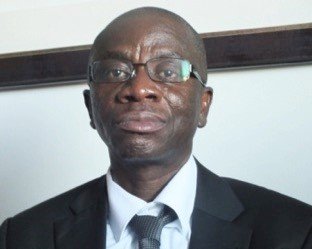Head of Department of Earth and Environmental Sciences, Dr Emmanuel Arhin, University of Development Studies- Navrongo, has called for an interdisciplinary research approach to address environmental health problems confronting the country.
He said it is imperative for stakeholders to ‘walk the talk’ and take effective action to curb the incidence of toxic and environmental health issues which poses threat to both humans and animals.
Â
Dr Arhin said this during a lecture on the topic: “Medical Geology: The Missing Gap in Ghana’s National Development,†organised by the Ghana Institution of Geoscientists.
Â
He called for a nationwide environmental geochemical survey to highlight hotspots of excesses of toxic elements and deficiencies to create awareness on health related issues.
Â
Dr Arhin said millions of people were exposed to excessive amounts of fluoride through drinking contaminated water from natural geological sources, saying this phenomenon must be a wake-up call for all to collaborate and address the concern.
Â
He said the World Health Organisation report mentioned some of the common diseases in the country as cholera, typhoid, pulmonary tuberculosis, anthrax, pertussis, tetanus, chicken pox, yellow fever, measles, malaria and HIV/AIDS.
Â
Dr Arhin said the report stressed that the impact of natural environmental on public health has not been critically highlighted and called on member countries to make known these issues for amicable redress.
Â
The Medical Geologist said the universe comprises of toxic entities and until the country address the issue from the earth science perspective and integrate it with other disciplines, there would continue to be health problems for humankind.
Â
He said the country like other developing countries has a double burden of impact on the effects of climate change and called collaborative support from member countries and development partners to help mitigate such impact.
Â
Alhaji Yakubu Iddrisu, President of Ghana Institution of Geoscientists, said the lecture was to provide networking and professional development opportunities to enhance membership skills with strong recognition and commitment to ethics and standards.
Â
He said the institution was one of the largest organisations in the country representing all minerals sector disciplines including geoscientists, metallurgists, and engineers.
Â





